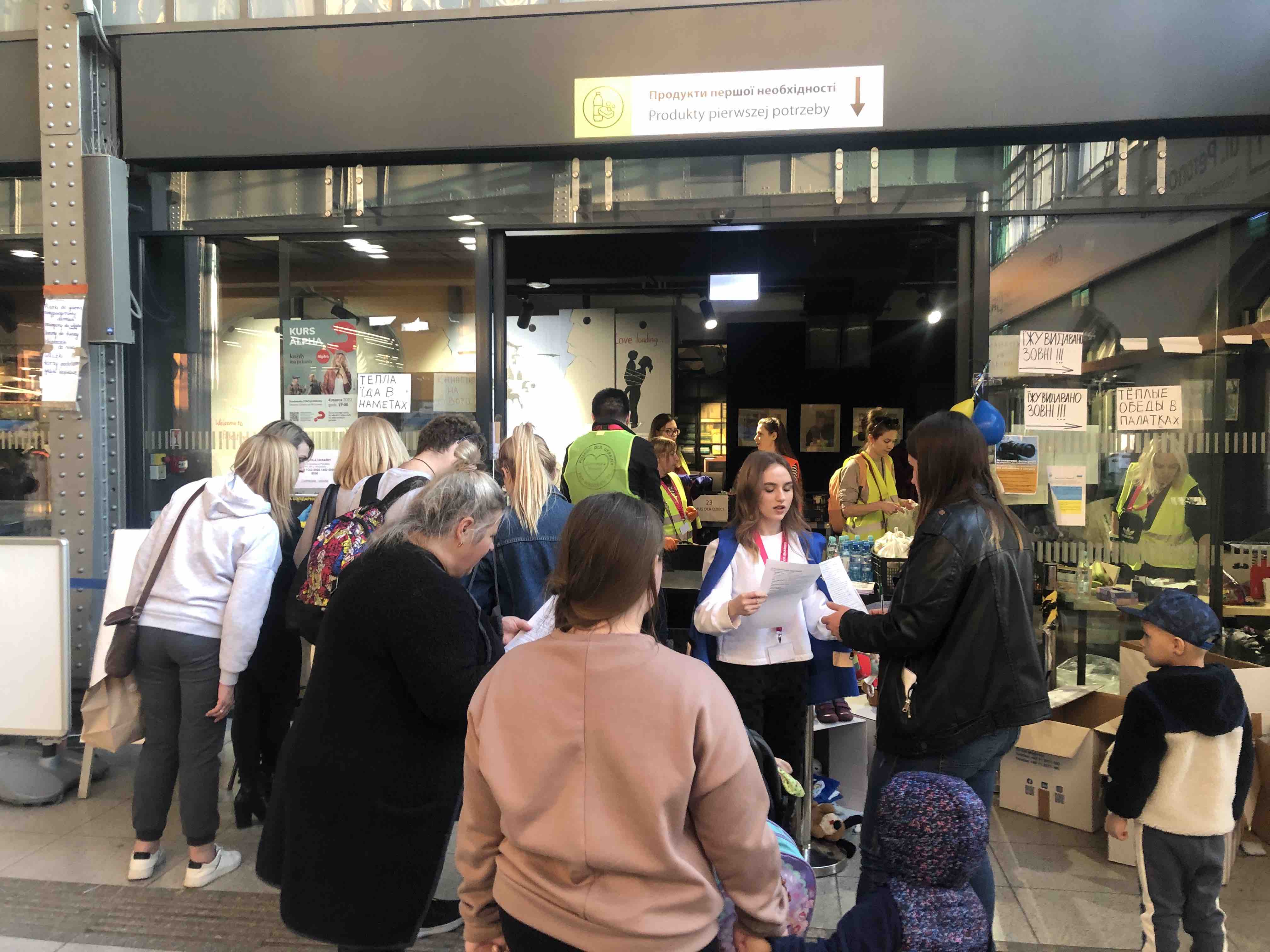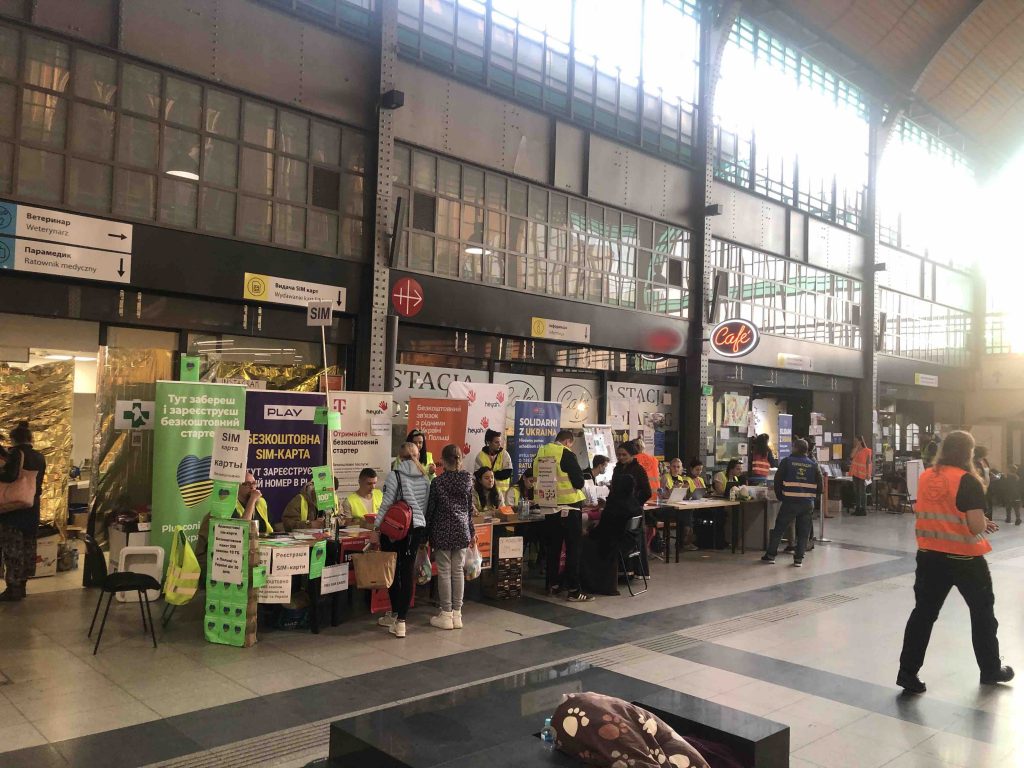CNJ Aid Van: How busy commuter station was turned into the Wroclaw refugee centre
Bewildered women and children are greeted with warmth and gentleness
Monday, 4th April 2022 — By Dan Carrier in Poland

Wroclaw station
SEE ALSO: CNJ AT 40: HELP US CELEBRATE OUR BIRTHDAY
– AND SUPPORT CAMPAIGNING JOURNALISM
CLICK THE DONATE BUTTON TO MAKE YOUR CONTRIBUTION
WROCLAW train station is an impressive piece of 19th-century industrialism and is Poland’s busiest railway interchange, writes Dan Carrier.
Over the past four weeks, the regular commuter hustle has been replaced by passengers with no job to get to – or home to return to.
Instead, it has become a key welcome point for refugees fleeing the war. The journey toWroclaw by train is around seven hours from the border, and people arrive tired and scared.
The immense challenge facing the city has been met by the mobilisation of hundreds of students.
It is known for the University of Wroclaw, which has seen nine graduates win the Nobel Prize.
With a student population of 130,000, it was impossible not detect a youthful, caring and dynamic vibe; there was plenty of altruism in the air.
The welcome operation has been running for over a month now since the first trains came in to Wroclaw Station.

They converted a coffee shop on the station’s forecourt into a reception centre, allocating jobs ranging from providing emergency medical assistance to finding new homes – both temporary and permanent.
The students begged and borrowed SIM cards and mobile phones to distribute, helping those arriving to contact relatives, and laptops were available for emails and messages.
Using university clubs and associations, unions and networks nurtured though shared courses, hundreds have downed their books and worked round the clock – for free, just to help.
V
olunteer co-ordinator Nadiia Sokolova grew up in Ukraine before moving to Poland.
She is a symphony conductor who performs with orchestras and also has a job in human resources when not leading musicians through classical works.
This life has been shelved for the past four weeks, she said, adding: “We were here right from the beginning and have had little sleep since.”
She added: “I have 10 orphans staying at my home at the moment. People across the city have done the same.”
“Every time a person steps into the station, I think that could be my mother, and I think how I would like her to be treated. That has helped me.”
At the station, young people wearing yellow bibs and holding clipboards give the operation an air of active efficiency.
Bewildered women and children are greeted with warmth and gentleness.
We watched as a mother and two children were tenderly led to seats, the children distracted by the offer of some toys to choose from while the mothers’ circumstances were noted and help offered.
As volunteers have explained, it is not just advice of the “if you go here, you might be eligible for…” type.
Instead, they have approached the crisis in a different way, saying: “We will take you here, and this is what we will sort out for you.”
It has helped the thousands of shell-shocked Ukrainians by offering more than just guidance, but a sense that these strangers care.
Daryna Oilynyk, who had travelled to Wroclaw from bombed Lviv, told the New Journal these simple acts held a deeper meaning.
“Our country has been attacked, destroyed, by strangers, by people I do not know and have no fight with,” she said.
“Now I am here, and being cared for people I do not know. We cannot ever forget what evil Putin has done – and we will also always remember the good these Polish people did in reply.”